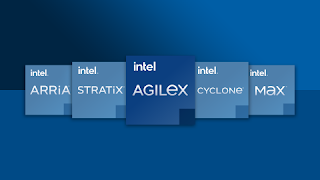Intel has recently announced its intention to spin off its Programmable Solutions Group (PSG) as a standalone business, starting from January 1, 2024. PSG is the division that produces Intel's FPGA products, such as Agilex, Stratix, and Cyclone, which are used in various applications ranging from datacenters to automotive to aerospace. Intel acquired PSG in 2015 when it bought Altera, one of the leading FPGA vendors, for $16.7 billion.
The spinoff is part of Intel's broader strategy to focus on its core competencies of chip design and manufacturing, while unlocking the value of its diverse assets. Intel believes that PSG can perform better as an independent entity, with more autonomy and flexibility to pursue growth opportunities in the FPGA market. Intel also plans to launch an IPO for PSG in two to three years, while retaining a majority stake in the company.
Why Intel is spinning off PSG
Intel's decision to spin off PSG is based on several factors, including:
The FPGA market is growing rapidly and has a large potential. According to Intel, the total available market for FPGAs is expected to grow at a compound annual growth rate of over 9%, reaching $11.5 billion by 2027. FPGAs are versatile and adaptable chips that can be programmed to perform specific tasks, such as accelerating artificial intelligence, machine learning, cloud computing, 5G, edge computing, and more. FPGAs are also gaining traction in emerging sectors such as industrial, automotive, defense, and aerospace, where they can offer high performance, low power consumption, and reliability.
PSG has been underperforming under Intel's umbrella. Despite achieving record revenues in recent quarters, Intel admits that PSG has been focusing too much on datacenter solutions, which account for about 60% of its sales, while neglecting other high-growth and high-margin segments. Intel also acknowledges that it has failed to integrate PSG well with its other businesses and leverage its synergies. For instance, Intel has not been able to deliver on its promise of combining FPGAs with its CPUs on the same package or socket, which would have given it a competitive edge over rivals such as Xilinx (now part of AMD) and Nvidia.
PSG can benefit from more independence and agility. By spinning off PSG as a separate company, Intel hopes to give it more freedom and flexibility to pursue its own strategy, vision, and culture. PSG will be able to make faster decisions, invest more in R&D and innovation, expand its product portfolio and customer base, and collaborate more easily with partners and suppliers. PSG will also be able to attract and retain talent better, as well as access more capital markets through an IPO.
How Intel and PSG will work together
Intel's spinoff of PSG does not mean that it is cutting ties with the business unit completely. On the contrary, Intel and PSG will maintain a strategic partnership, especially in the areas of manufacturing and foundry services. Intel will continue to supply PSG with its advanced process technologies, such as 10nm and 7nm, as well as offer it access to its new Intel Foundry Services (IFS) division, which provides chip fabrication services to external customers. This will ensure that PSG has a reliable and predictable supply of chips, which is crucial for its customers who demand high quality and availability.
Intel will also continue to support PSG's products and customers through its sales and marketing channels, as well as collaborate with PSG on joint solutions for datacenter and cloud applications. Intel will also leverage PSG's expertise and IP in FPGAs for its own products and initiatives, such as its Xe graphics architecture and its OneAPI software platform.
What it means for the FPGA market
Intel's spinoff of PSG is expected to have significant implications for the FPGA market and its players. Some of the possible outcomes are:
PSG will become a stronger competitor in the FPGA market. As an independent company, PSG will be able to focus more on its core strengths and capabilities in FPGAs, as well as expand into new segments and regions. PSG will also be able to differentiate itself from other FPGA vendors by offering solutions that leverage Intel's process technologies, foundry services, CPU platforms, graphics architectures, software tools, and ecosystem. PSG will also be able to compete more effectively on price, performance, power efficiency




Your comments will be moderated before it appears here.